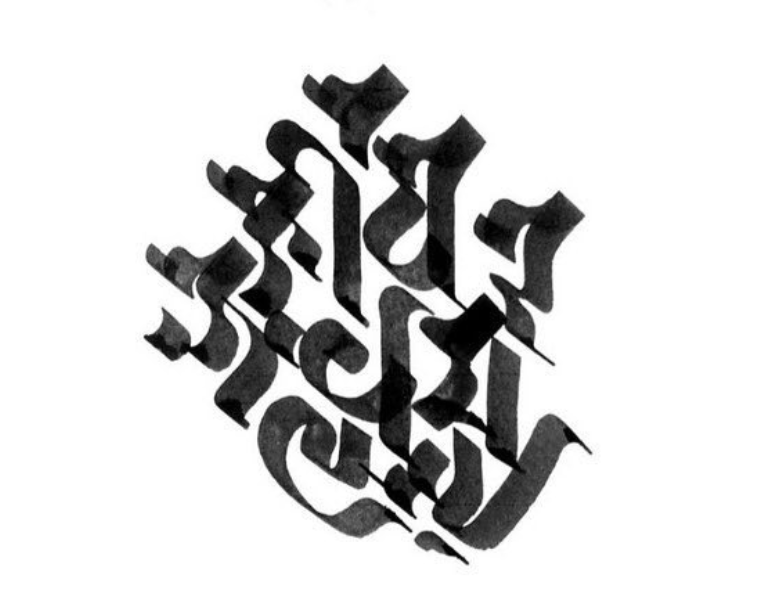Passage Meditation: What It is and Why You Should Do It
I was recently in Jagannath Puri participating and co-facilitating a retreat. One of the other facilitators, Akincana Krishna prabhu, a long time friend of mine and glorious kirtan singer, gave a presentation on passage meditation, a practice popularize by an Eknath Easwaran. I want to share in this article what it is and why i think you and I should do it.
What is passage meditation?
Well, unsurprisingly, it’s exactly what it sounds like, viz. meditation on a passage! Like any contemporary application of meditation, one may start it by stilling the psycho-physical apparatus using whatever techniques that are affective for you; maybe taking no longer than a few minutes. After establishing stillness, one begins to meditate, but instead of having a mantra as the focus of the meditation, or much less observing the capricious mind-states as a detached witness, one meditates on a passage of one’s choosing.
How is it practiced?
The method of meditating on the passage is to recite it with one’s inner-voice (i.e. that voice inside your head, the same one you’re using to read this) SLOWLY, as if wanting to indelibly imprint every single word of one’s chosen passage on the canvas of one’s psyche. This means leaving enough space between the words to fully receive its impress, but not too much space that the mind’s restlessness is allowed sovereignty. For example, if the serenity prayer was one’s chosen passage, it might be recited as “God…(one, one thousand, two one thousand)…grant me…(one one thousand two one thousand)…the serenity…” etc. etc. How one groups phrases and paces one’s chosen passage is a matter of intuitive sincerity like adjusting the shower knob to find just the right temperature; one’s knows what works for them.
What type of passage should be chosen?
Eknath Easwaran recommends selecting passages from sacred text—e.g. Bible, Bhagavad-Gita, Bhagavata-Purana, Dhamapada, Yoga-Sutra, etc.—or the works of mystics from any of the worlds great traditions. The (my) sense of this suggestion is the voice of eternity has entered and reached out to the world through these sacred centers of scriptures and mystics, and therefore, by selecting those passages we join our voice with eternity and in this way gradually immortalize the mind, i.e. divinize the mind so it may commune with the divine.
Eknath does not see secular work of aesthetic beauty, which he had a deep familiarity with and love for as an English teacher of literature, as conferring the same potency to divinized the mind. Personally, although it makes sense to me to largely draw one’s selected passages from the “confirmed” sacred text and mystics of the world, I am also of the conviction that all of life is the existential seat (adhisthan) of God’s immanence and therefore its sacrality is intrinsic. As such, the voice of eternity may come seeping through any channel if one is sensitive and attentive enough to catch it, including what appears secular and separated from divinity. For example, recently a friend of mine reached out to me due to having entered a hostile environment that triggered some insecurity about his deservedness to be in that space. I suggested he try passage meditation on the “litany against fear” from the Dune saga; the famous
“I must not fear. Fear is the mind killer. Fear is the little-death that brings total obliteration. I will face my fear. I will permit it to pass over me and through me. And when it has gone past I will turn the inner eye to see its path. Where the fear has gone there will be nothing. Only I will remain.”
Although “secular” in the apparent sense, this passage has always struck me as the voice of eternity breaking through the channel of the Dune author’s pen and saying, like Krishna at the very conclusion of his discourse in Bhagavad-Gita, “Do not fear” (ma sucah).
In any case, the passage selected should be one that upholds and upbuilds the spirit.
Why should you and I do passage meditation?
Aside from conferring all the same benefits as other types of meditation, passage meditation reforms the mind in ways I think may be more potent and important than other meditative practices.
For starters, if you’re the average (postmodern) human like me, than the mind is in terrible need of re-form, i.e. in need of being formed-again intentionally and directionally by the individual who carefully selects what ideas get in and become part of one’s interior world. Unfortunately, the average human tends to outsource the responsibility of their own mind formation to social media algorithms, educational status quo, mainstream/alternative-stream media, crowd madness, etc. Most people‘s minds are the product of unintentional design by foreign invaders. The effect of indiscriminate consummation deteriorating mental health, like a cancerous contagion subverting the very fabric of even conventional prosperity, what then to speak of lofty spiritual efflorescence. Passage meditation, then, begins to wrestles control from these “foreign contagions” by the individual intentionally choosing what sort of ideas get inculcated and integrated into the mind; and may even act as a subtle prophylactic preventing the ingress of ideas that lack coherence with those intentional choices.
Over and above this foundational need for reformation, passage meditation is a practice that can fully fill, i.e. fulfill, the container of consciousness. This is so because as a practice, one is called to memorize the passage one will meditate upon. One of the central insidious poisons of postmodernity’s technological hegemony is that humans have become addicted to externalizing all their experiences and knowledge, making memory of them redundant. What this is translating to practically is a human who resembles some sort of empty humanoid which can easily be “uploaded” with God knows what by “foreign invaders.” In contradistinction, imagine a human fully filled by divine and lofty thoughts which were selected, memorized, and integrated and have become part of him through his practice of passage meditation like muscles gained through the hard work of progressive overload weight training. In other words, passage meditation can countect the moral and spiritual bankruptcy that is fast leading to the utter dissolution of the postmodern world.
Why spiritual people, especially those who participate in a spiritual tradition, should consider passage meditation?
Aside from the reform and fulfillment case just made for passage meditation, which applies to the secular and spiritual alike, there may be further consideration for its practice for the spiritual, especially those of a theistic bent which, I want to state briefly.
Spiritual practices, especially in the East, tend to be about the counteraction of ignorance, understood as the categorical mistaking of the self (consciousness) for the non-self (matter, i.e. body and mind). To put an end to the afflictions starting with and rooted in ignorance, says Yoga-Sutras, one should employ kriya-yoga (YS 2.1-2), and element of which is svAdhyaya or self-study.
SvAdhyaya involves scriptural study as well as the practice of japa; and the fruit of one who refines this practice to a high degree, says Yoga-sutra, is the complete union (samprayoga) with the deity of one’s heart (YS 2.44). So for example svAdhyaya of the Bhagavata-Purana, my most beloved sacred text, would yield the fruit of the samprayoga of Krishna, the deity of Bhagavata-purana (and my heart). Passage meditation, then, is tantamount to a powerful svadhyaya practice, which leads to a most beautiful fruit.
Finally, why I think passage meditation should be done by the spiritually minded in general, especially those with a theistic bent, is because it can translate as a powerful prayerful approach to scripture in contrast with the general approach which tends to be largely academic. What I mean by this is that as conscious subjects in an inert world, our relation is always one of being superior (para-prakrti) to the inert objects (apara-prakrti) we try to mold for our benefit [BG 7.5]. Mundane knowledge is included within the lifeless objects with which we stand as ontological superiors.
Spiritual knowledge on the other hand is said to be living, i.e. possessing subjectivity as an intrinsic characteristic. The two eternal forms of divinity are shabda-brahman (scripture) and para-brahman (avatAri and avatAras) [6.16.51 SB]. So the words of sacred text are a living-knowledge occupying a superior subjectivity—supra-subjective (?)—than the jiva. The idea then is we stand as objects to be molded by that suprasubjective reality, and not the other way around. However, just as many demons and other ordinary humans looked upon Krishna as ordinary [BG 9.11], we tend to look upon the words of sacred text, not as a living-word/knowledge, but as inert knowledge, the kind we’re accustomed to encountering and manipulating according to our finite machinations.
Consequently, we either fail to engage with it whatsoever, not seeing our obligation to honor and adore that divinity because it looks like a book that doesn’t particularly interest us; or else, relate to it only in a utilitarian way, seeking to understand primarily for fulfilling our purpose of happiness and moving on after we’ve conquered it (i.e. understood the point).
There’s a third position aside from negligence and conquest that we can take in relation to shabda-brahman, and that is devotion easily accomplished just by “thinking of Me” [BG 9.34/18.65]. Passage meditation is not just about understanding a point, but remembering (smarana) deeply. It might be liken to a Christian contemplative practice called Lectio Divina (Divine reading), which also seeks to relate to scripture prayerfully as the living word of God. If passage meditation seeks understanding it does so by the method of deep contemplation (satatam-yuktanam) and allowing the Lord as shabda to bless one with understanding (dadami buddhi-yogam) [BG 10.10]. It slows one’s pace and says to God that I’m here with you, intentionally and deeply.
At the end of the day, we’re all humans looking for deeper connection with Reality and we all should address that need by exploring what works for us as individual, unpluging from the matrix and tuning in to the higher reality that is the shelter of us all. If not passage meditation, then something else. But if you don’t have something else at the moment by which you tune in deeply and truly (not talking about a daily quota of rote rituals please), than give passage meditation a go. I think you will find it fruits incredibly refreshing.




Member discussion